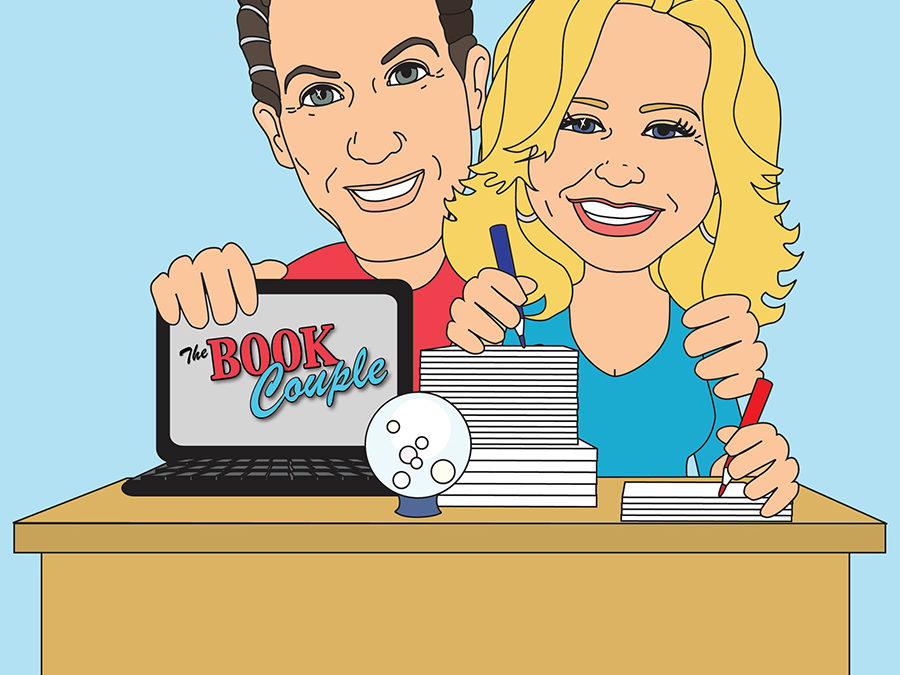Tell me about yourselves and what you do.
Carol: I’m an editorial specialist.
Gary: And I’m a graphic designer and typesetter.
We live in Boca Raton, but we’re originally from Long Island, New York. We’ve been here for 15 years now, and we’re so glad we made the move.
We work for publishers, and we each have our own individual clients. But together, we’re the Book Couple. We help people who want to publish independently package their books. So basically, we’re book packagers who focus on traditional quality, and we assist in the self-publishing process.
What inspired you to get into publishing?
CAROL: I’ve always loved bookstores. I’m a book collector. I’ve also always loved to write. After I wrote my own book in 1996, I decided that my next best step was to get into book publishing. I started as an editorial assistant at Avery Publishing in Garden City, New York, and quickly worked my way up the ranks to book editor and later an acquisitions editor at HCI Books in Deerfield Beach.
GARY: My love of books, my love of reading, my English studies in college, my desire to put my creative skills to use in a very literal sense. And my love of architectural design, which I apply to all my book interiors and covers. Creating a book is like putting together a construction project. I’m like a builder, a builder of books. I began in newspapers but eventually made my way into educational publishing and then into trade book publishing.
Do you think everyone should write a book?
CAROL: If someone loves to write and feels compelled to share a message, then they should definitely try their hand at writing a book. I think we all have messages we want to leave behind. For some people, they leave it through their artwork, or letters, or photographs. A book is just one way to get your message out. It’s not for everyone, but it can be a powerful way to leave your mark on the world.
GARY: With regard to self-help and motivational books, everyone has a unique perspective of the world around them and how they approach problems and challenges. If they feel they have a valid method of dealing with things that would be helpful to others, that’s a wonderful reason to share your words. Everybody has a different way of expressing themselves and their creativity lies in different areas but for those who enjoy writing, I think this is the best form of expression.
How does one choose between traditional publishing and self-publishing?
CAROL: It used to be that it was very difficult to publish your own book. So if a traditional publisher didn’t pick up your book, there was a good chance you would never hold your book in your hands. Having a publisher was like having a stamp of approval, and self-publishing was a choice that was made for you because you couldn’t get a publisher. But that’s not the case anymore.
GARY: Anyone who writes a book or has an idea for a book can still go through the traditional process of finding a literary agent, who then shops the idea or manuscript to various publishers. This takes a lot of time and a lot of legwork, yes, but we would never discourage anyone from going that route if that’s what they truly want to do. But there’s never any guarantee a publisher will acquire your manuscript.
CAROL: There are lots of people who don’t want to do that sort of legwork and wait all that time to maybe get their books into the hands of readers. Those are the people who usually opt to self-publish—or publish independently. It’s a personal choice, but it’s really important that a person who does publish independently does so understanding what goes into publishing a good-quality book: developmental editors, copyeditors, proofreaders, cover and interior designers, typesetters, etc.
Why is it important to have your book edited and professionally designed?
CAROL: I think an author needs to respect their readers. They should want their book to look and read like a traditionally published book. When you’re asking someone to buy your book and read what you have to say, they are trusting you with their money and their time. Maybe they won’t notice that your book isn’t technically correct and doesn’t look like a book from a traditional publisher consciously, but subconsciously, a poorly edited book and a sloppy layout will likely nag at them and reduce their enjoyment.
GARY: Some people just want to get their book out into the world and aren’t concerned with aesthetics. Sometimes it’s about not having the budget. In that case, I recommend that a person only publish an e-book rather than trying to design a book interior in word-processing software. A book that’s pleasant to look at and easy to read is going to leave a more favorable impression (which word of mouth relies on) than one that isn’t.

Recent Comments